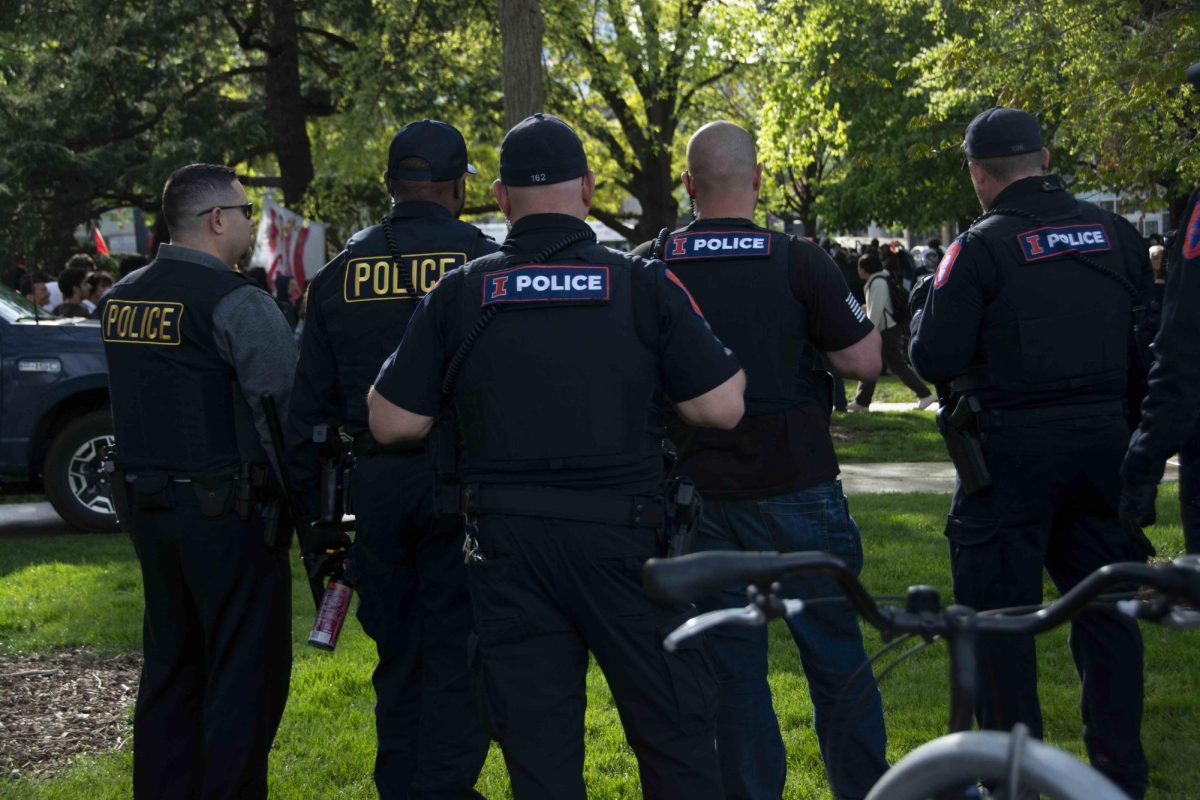Wednesday’s meeting of the Urbana-Champaign Big Broadband project, or UC2B, policy committee raised concerns about the process of selecting a business planning consultant.
During public comment on a resolution to contract consulting company NEO Fiber, Craig Walker, senior vice president of Blaylock Robert Van LLC, a local investment banking firm, questioned the selection process.
“There were no African-American firms invited to bid,” Walker said.
He said his minority-owned company was the lowest of three bidders and was not selected.
Walker suggested the committee either start over and rebid the project or require that minority firms be utilized for future project work.
Get The Daily Illini in your inbox!
He also noted his prior disapproval of hiring Teri Legner, interim UC2B consortium coordinator.
“I personally wrote a note to the city manager and the mayor expressing concern because her professional history in working to include minority firms has been absolutely none,” he said. “This is an issue that needs to be addressed because it’s further evidence that the city has designated a person to be in charge of this program, and then in the one area where they have the control to provide inclusion, she did not.”
Legner explained that her committee gathered nine potential firms from sources knowledgeable about the subject.
“We gathered those names from people that have experience in this big broadband business,” she said. “These people that we interviewed all had experience with these kinds of projects across the country.”
UC2B policy committee members agreed that NEO Fiber is an acceptable choice, but many questioned how it was chosen.
“I understand that the people we’re choosing have the qualifications that are necessary, but it doesn’t answer the question of whether there are minority firms out there that also have the qualifications, and we just missed the mark in not asking them to do a proposal for us,” said Deborah Feinen, UC2B policy committee chair and at-large Champaign councilwoman.
Abdul Alkalimat, voting member of the policy committee, agreed with this notion.
“We’ve got to give serious consideration to what was said (by Walker),” he said. “Not that we might end up with a new firm to make a contract with, but we should demonstrate to the community that we are aware of our need to go the extra step and find out whether or not in fact there are any minority firms that are in the business that we might have overlooked.”
Diane Kruse, owner of NEO Fiber, spoke to the committee by phone and noted that her firm is woman-owned and that one of her four employees is of Latino descent. Richard Schnuer, committee voting member, noted that 25 percent of her employees are therefore minorities.
Walker acknowledged that while this satisfies minority requirements, it violates promises previously made to local community members.
“You could certainly satisfy all of your requirements by hiring a woman-owned firm,” Walker said. “But you have violated then your promise to the community that you would include African-Americans and Latinos in this process.”
The general committee sentiment was summed up by Pete Resnick, committee voting member, when he said that “the outcome is probably as good as could be expected from a selection process that was looking for minority and women-owned representation, but the outcome isn’t the issue — it’s the way we got here.”
A motion to pass the resolution was presented by Brandon Bowersox, committee vice-chair and Urbana City Council member, and was seconded by Schnuer. Both expressed the need to closely monitor the inclusion of minority groups for future proposals. The resolution passed, with Alkalimat abstaining from the vote.
“I want to make it very clear that we have to go the extra mile, and if we don’t go the extra mile, then we’re agreeing that business as usual is acceptable,” Alkalimat said.




